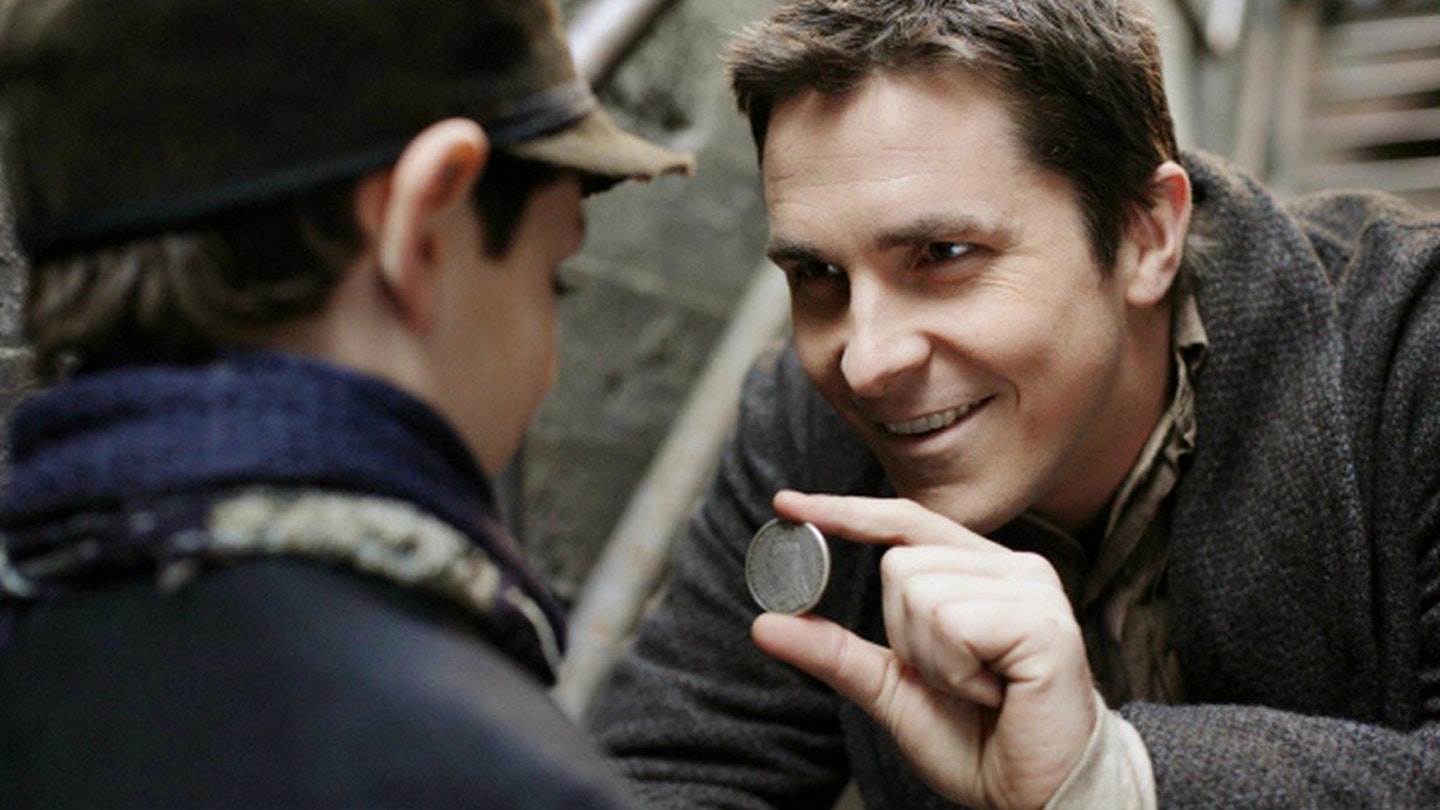As Tenet prepares for an imminent arrival in UK cinemas – not only the much-hyped big-screen return of Christopher Nolan, but the return of cinematic blockbusters full-stop in the wake of the Coronavirus pandemic – Empire Online is celebrating with Nolan Week, looking at the work of a modern-day filmmaking icon. Here, we look back at our original 2006 feature on The Prestige – one of his smaller but most well-loved movies, charting the rivalry of Victorian-era magicians played by Hugh Jackman and Christian Bale.
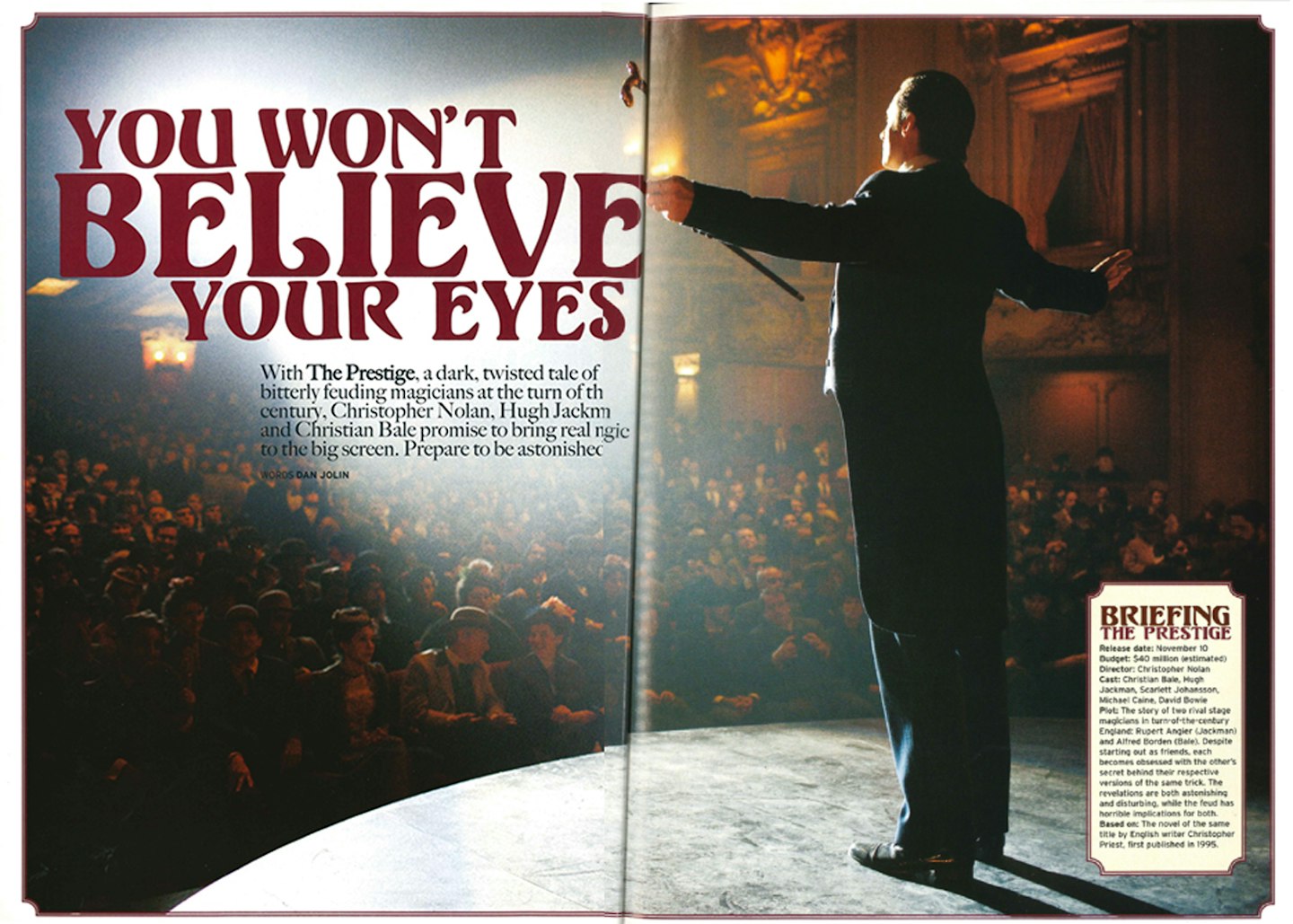
At the turn of the 20th Century, when the popularity of stage magic was at its peak, one of the most celebrated performers was a prestidigitator named Chee Ling Qua, known on the boards as Ching Ling Foo. This frail Chinese magician's speciality was the materialisation of various objects from beneath a simple piece of cloth which he spread upon the stage, his show climaxing with the astonishing unveiling from thin air of a huge goldfish bowl, filled to the brim with water and weighing roughly 80lbs. He closely guarded the secret of how he performed this trick, which required no elaborate contraptions; no smoke, no mirrors.
Ching's secret didn't die with him, though. The fact was that he wasn't as frail as he appeared. His creaking, shuffling gait was an affectation, maintained obsessively throughout his off-stage life, so as to disguise the reality that, during the show, he's carrying this large, heavy, water-filled receptacle clenched between his legs, concealed masterfully beneath his flowing robe. His deception, his maintenance of misdirection, his commitment to this one trick was so fundamental, it affected every waking second of his life.
It was Ching's story that inspired British novelist Christopher Priest to pen The Prestige, the rich source material for Christopher Nolan's latest cinematic puzzler, back in the early '90s. Set primarily in the late 19th century and very early 1900s, it relates the tale of two fictional stage magicians, Rupert Angier and Alfred Borden, both stars of their day, who develop a feud which rages around their respective executions of a single trick. The fact that Ching himself developed a real-life feud with another magician, Chung Ling Soo (real name William Ellsworth Robinson), must have encouraged Priest, but that was not the key to his intrigue. The key was, in Priest's words, the "obsessive secrecy" which defined Ching's life, and the "obsessive curiosity" evinced by many of his contemporaries with regard to his execution of the trick; both things ultimately forming the core of Angier and Borden's relationship.
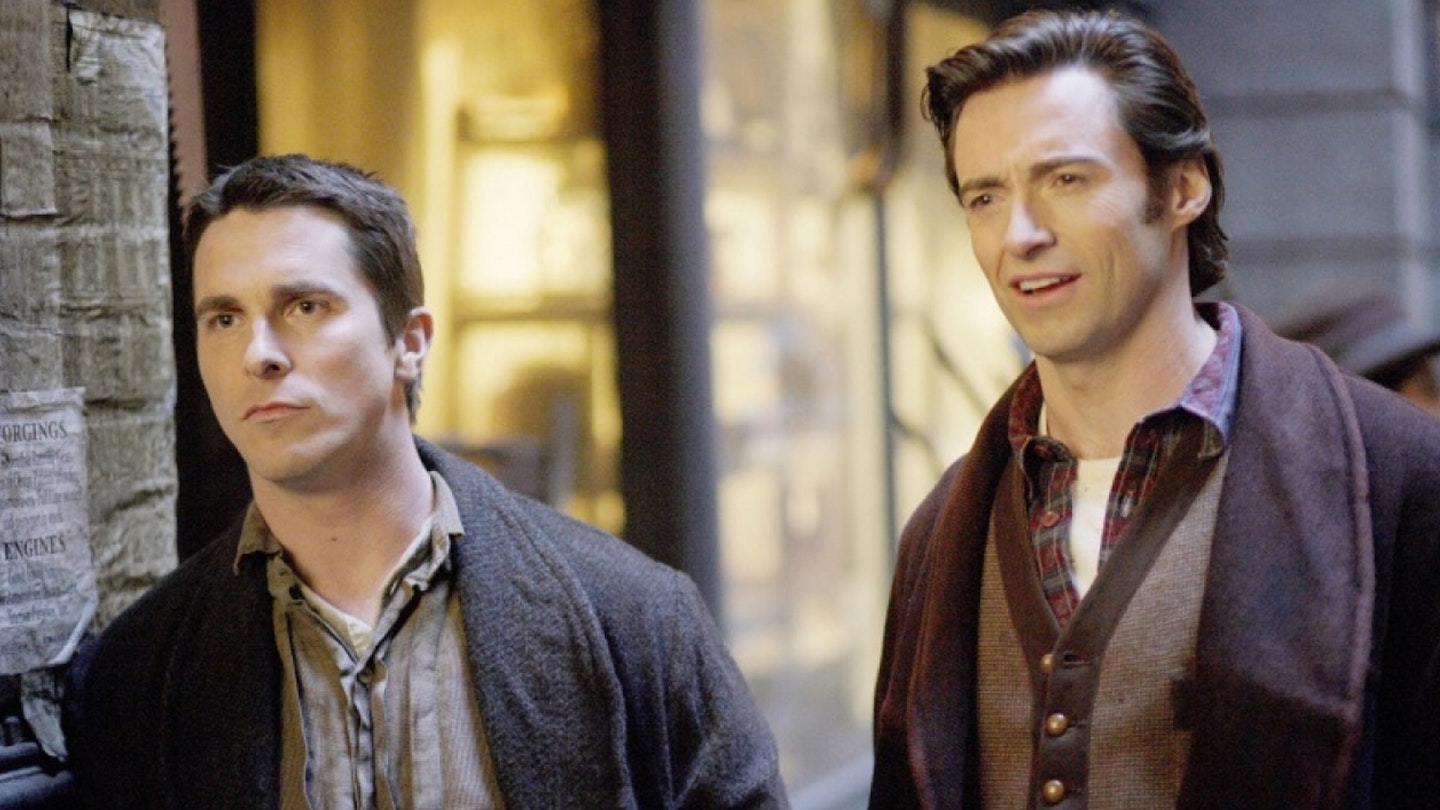
"Obsessive secrecy" is also a fairly accurate description of the Prestige filmmakers' attitude to their adventurous adaptation of Priest's book. When Empire asks Christian Bale, who takes the role of Borden, if a certain plot point from the novel remains in the film, he gravely says, "I am totally silent," before telling us that it's deeply important we don't in any way repeat what we asked him in this feature (don't worry, we won't). When we mention to Nolan that we've read Priest's book, he chides us. "You shouldn't read it before you see the film," he groans. "It spoils everything!" ·
With The Prestige not being the most widely read of novels, the secret's safe for most of us. And Nolan's hardly going to reveal where he keeps his goldfish bowl before the curtain even goes up. But one thing is made very clear during Empire’s time with director and his stars: magic – as in misdirection and spectacle, rather than the arcane fireworks Gandalf throws about – permeates the very DNA of Nolan's movie.
———
Every great magic trick consists of three acts. The first act is called ‘The Pledge’. The magician shows you something ordinary. But of course, it probably isn’t…
———
Internet lore has it that Nolan, the London-born director responsible for arguably the most intelligent blockbuster yet made, was looking for something 'small' to do between Batman movies, and somehow ended up with the 'big' Prestige. However, it's not that simple. "That's how it's been presented," he tells Empire in his quiet, crisp, proper-English manner, "but it's not the case.
"When I finished Batman, I had no intention of doing a sequel. The Prestige is a project I've been working on with my brother Jonathan (with whom Christopher penned genius back-to- front twist-thriller Memento) for about six or seven years. We were originally going to do it before Batman Begins but we ran out of time, so we came back to it afterwards. I tried to do The Prestige in a smaller way than I had at first imagined, as a more intimate film."
But now it's in the can, Nolan's realised he has something quite different on his hands. The rabbit and the top hat have somehow become a Siberian tiger and a gilded cage. "What I've ended up with is strangely a much bigger film than I realised. I mean, for example, we didn't build any sets, we shot it all on location. And there are scenes we didn't even light, and everything's predominantly shot with a handheld camera. We didn't give the actors marks, we had to follow them. We tried to be much looser and more spontaneous than we were able to be on Batman Begins, which was a very precisely made action movie. I thought
I was making some obscure little art film or something, and we showed it to the studio and they see it as a very mainstream film – which, if that's the case, is delightful."
You have to wonder why he's so surprised. After all, think of the cast he's gathered: Scarlett Johansson as Olivia, the woman who becomes wrapped up in the feud; David Bowie as electrical pioneer Nikola Tesla; Andy Serkis as his assistant, Mr. Alley; Michael Caine as wily ingénieur Cutter; and, at the top of the bill, Bale as Alfred Borden – aka 'Le Professeur De Magie' – and Hugh Jackman as Rupert Angier – aka 'The Great Danton'.
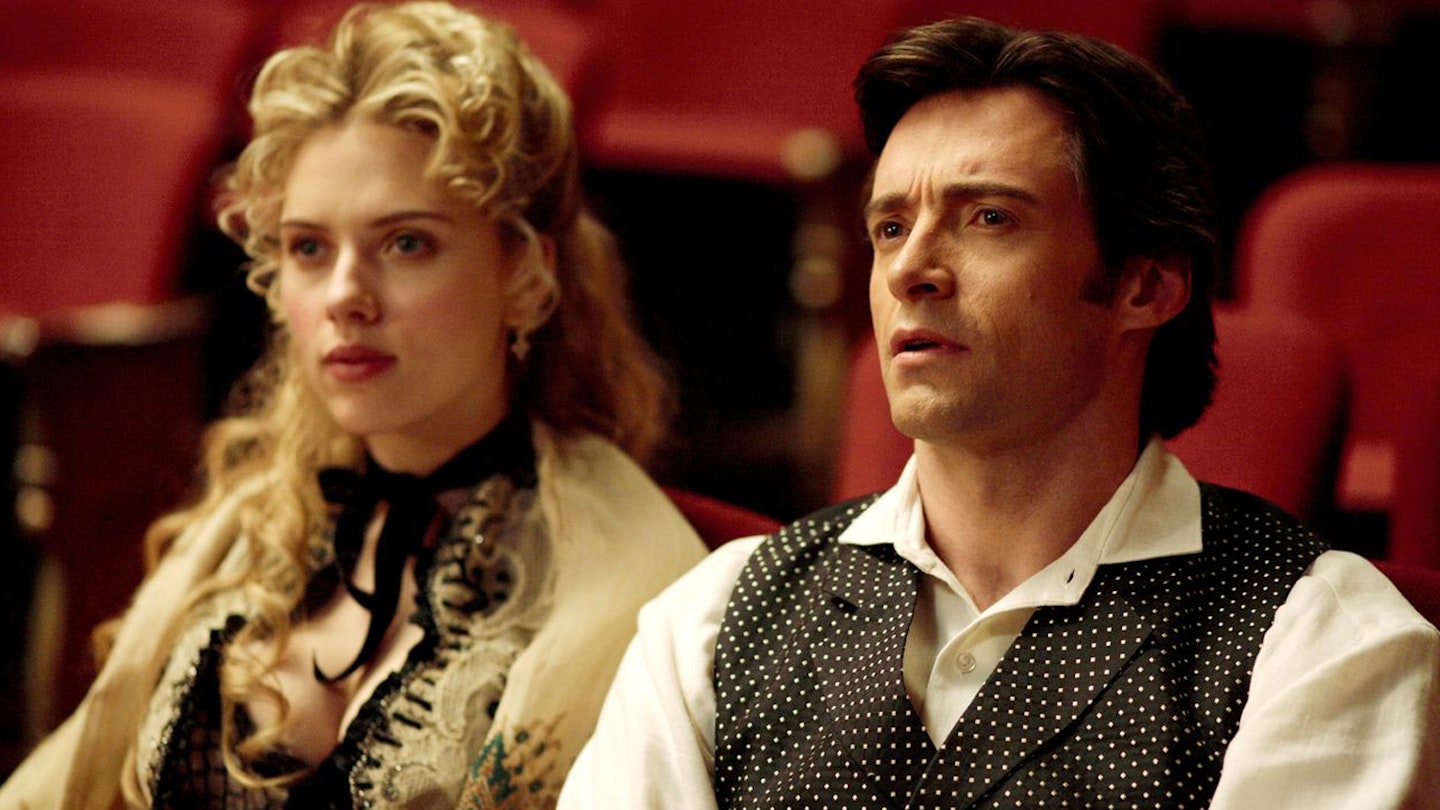
Despite both Bale and Caine having worked with Nolan already on Batman Begins, it was actually Jackman who was first recruited. "When I met Chris, he hadn't cast either role," he tells Empire. "My agent felt that the role of Borden was what was available, and having wrangled a day off from X-Men 3 in Vancouver I went down there happy to play either. But after seeing him he did ask which I preferred and I said Angier was probably better suited to me. And when Christian was cast as Borden, I think our roles really fit us like a glove.
"Both of them are very good magicians," Jackman goes on, "and as they get on in their careers they become the top two magicians going around at the time. Borden is kind of a genius magician, a better magician ultimately than my character. But my character is much more a natural showman."
Bale, who actively canvassed for the role of Borden ("I actually don't know how he got hold of the script!" admits Nolan), agrees. "I was attracted particularly to Borden because he's quite an awkward character who's uncomfortable in front of an audience. That was a good fit for me because I've hardly ever done any stage work. Whereas Hugh has done loads of stage musicals, he's really at home on the boards. And that really showed while shooting – he really took to the showmanship."
While obviously pleased with his casting, Nolan confesses that he didn't have anyone in mind for any of the roles while working on the script. "I don't think of actors when writing a script, I think of the characters," he says. "I think it's short-changing the characters if you apply the visualisation of an actor to them. You're limiting what the character can do if you view them one way. So I wasn't really thinking of actors. Like Michael Caine's role, for example. It definitely seems written for Michael but it wasn't at all. It was only after I'd worked with him and then came back to the script and his character I realised: that's Michael."
Another crucial role was that of eccentric Serbian inventor Tesla, the genius electrical engineer who in Priest's story assists Angier with a new, spectacular showstopper – the advent of electricity occuring around the time of the story, adding a significant wow factor to both magicians' sets. "For people at the time, science was the supernatural," notes Bale.
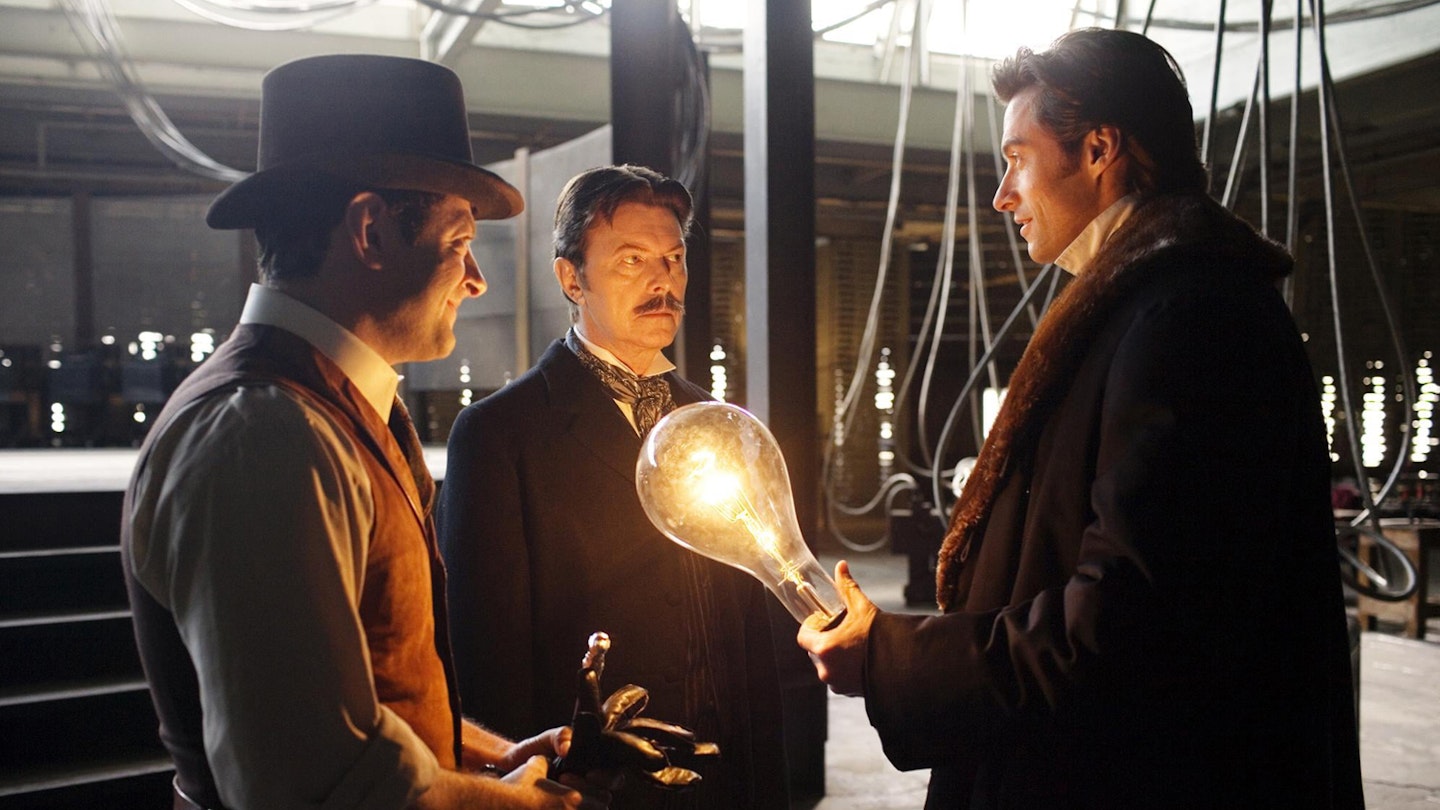
"Tesla's function in the story is small," says Nolan, "but it's a very important role. I wanted someone who, while not a movie star per se, was charismatic and had a star quality in a different way – and Bowie was perfect for that." His co-stars were predictably thrilled to be working with The Thin White Duke, but none more so than Christian Bale's mum; "When I told her I was in the same film as David Bowie, she said, 'Oh, finally you're doing an important film!' I said, 'Well, I have worked with Michael Caine, Morgan Freeman...' and she was like, 'But this is David Bowie!' And I don't even have a scene with him!"
———
… The second act is called ‘The Turn’. The magician makes this ordinary something do something extraordinary. Now you’re looking for the secret. But you won’t find it…
———
Having Jackman face off against Bale must be giving the fanboys a field-day. Surely at some point during the shoot someone must have realised: “Hey, this is cool: it’s Batman versus Wolverine!” Or so you’d have thought.
Bale chuckles. "You know what?" he says, "It didn't even cross my mind. Now you've said it, it's really obvious! But it should tell you a lot that you saying that is the first time I've even really considered it!" Jackman tells it differently: "We had a couple of laughs," he says, "because of course he's about to go into Batman 2 and I've just finished X-Men 3, so we were trading a few comments about the intricacies of our contracts. Which, er, seeing as we share the same agent, he'll be a bit nervous to hear!"
Nolan, meanwhile, is keen to look beyond the comic-book iconography. "I probably made the joke at some point," he says. "You know: Wolverine versus Batman, with Harry Palmer and Gollum – Gollum and King Kong, in fact! It's a very good cast of cultural icons. But Christian obviously started out as a child actor and as he's matured he's done lots of different things, so I certainly didn't think of him as just Batman, even though as Batman he was a great choice. And Hugh, the same thing – there's a great depth to this guy as an actor. Wolverine is just one aspect of his work. I mean, I think if Bryan Singer had seen The Prestige before making the first X-Men, he'd never have thought of Hugh for Wolverine! He's just completely different here. He's a very, very talented actor. I think much more than his other films have shown."
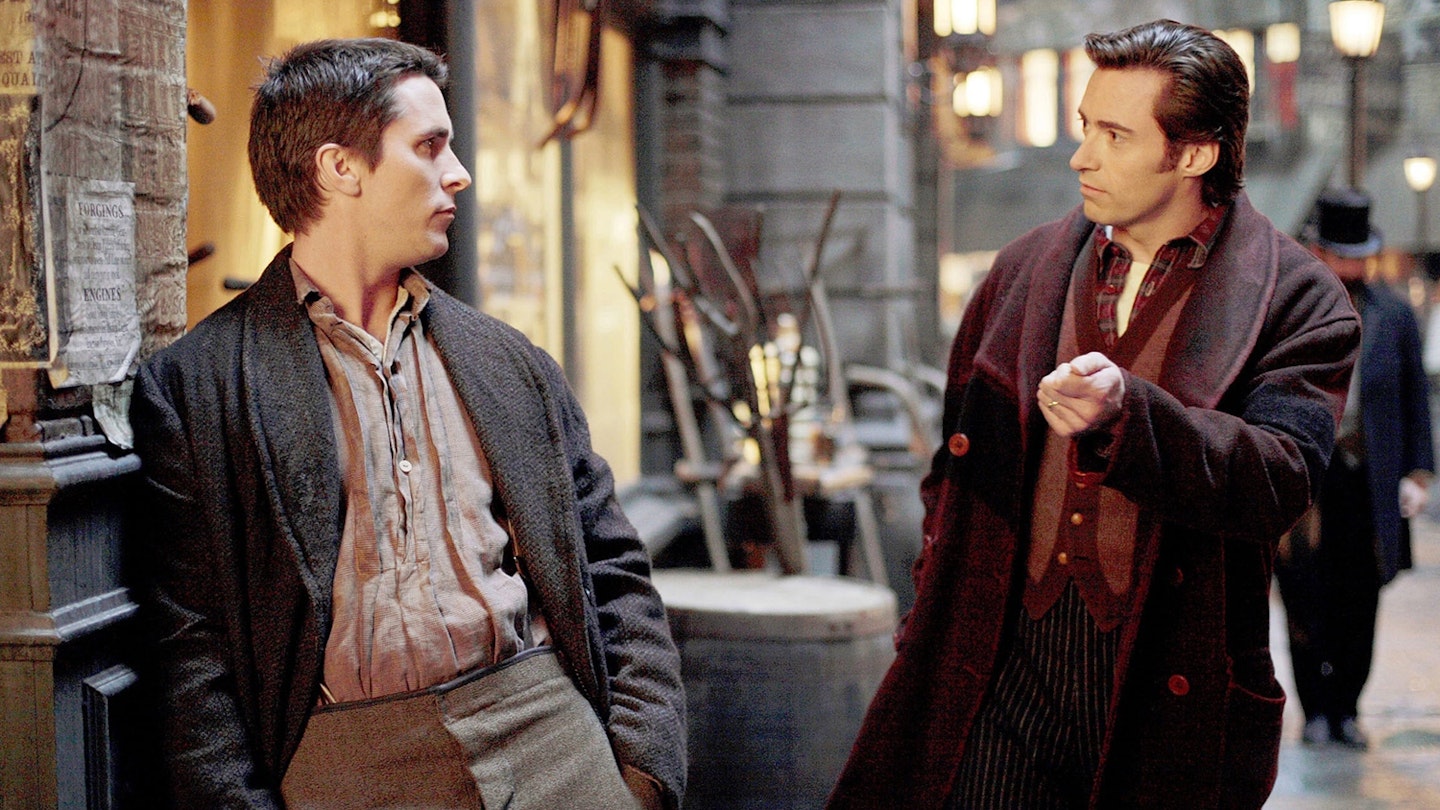
Both stars were required to hone certain prestidigation skills in order to make their characters sufficiently believable, so Nolan brought in professional magicians Ricky Jay ("the king of sleight-of-hand in the world," according to Jackman) and Michael Weber, who specialise in teaching magic skills to the movie industry. Their outfit, rather tellingly, is called Need To Know.
"They basically taught us exactly whatever we needed to pull off the shot, and nothing else," says Jackrnan.
"We didn't learn as much as you'd think," adds Bale. "In fact, I couldn't show you anything. It was very frustrating."
"Yeah," continues Jackman, "after about eight weeks, both Christian and I got together and were like, 'We've got nothing we can do at a party – our kids keep asking to do them a magic trick and we don't have anything!', since the magic tricks are quite elaborate in the show. So we said, 'Hey Ricky, can you just teach us a trick, mate? Like just a card trick, something simple? And he goes, 'No!'"
Both, however, found their own way – to some degree – around Jay and Weber's obsessive secrecy (there it is again). "I did learn a few things myself," says Bale, "just a few little techniques, like how to shuffle a pack of cards with one hand. But it's just a few small moments in the film – I don't even know if anyone will even notice!" Jackman, meanwhile, found himself another mentor: "Ricky couldn't be there for the last week of shooting and I needed to do a trick, a very small thing where I produce a flower from my hand. And this young guy came and helped me out, and he was actually an aspiring actor and magic was just a part-time thing, so he was perfect. He told me whatever I wanted to know! So now I do have a few tricks – I can make a little ball disappear in my hand!"
———
… that’s why there’s a third act called ‘The Prestige’. This is the part with the twists and the turns. Where lives hang in the balance. And you see something shocking that you’ve never seen before.
———
Jackman and Bale may have been keen to show off their tricks, but Nolan, as we said, is keeping his sleeves firmly buttoned up. Having proved himself a master rug-puller with all his movies so far – most significantly Memento – we can fully expect The Prestige to be just as brilliantly confounding. Even Christopher Priest was intrigued as to how the director and his brother would pull off his work on the big screen. "The puzzle for me was, 'How the hell would you adapt it?''' he says, recalling the news that the Nolans had taken it on. "I kept thinking, 'How would I adapt this? How are they going to do it?' I came to the conclusion that they wouldn't be able to. Then, six months later, I got a copy of the screenplay through the post. And the first words in the screenplay are the words you hear in the trailer. You know: Michael Caine's voice says, 'Every trick has three parts...' And I kicked myself. I thought, 'I wish I'd started the novel this way!'"
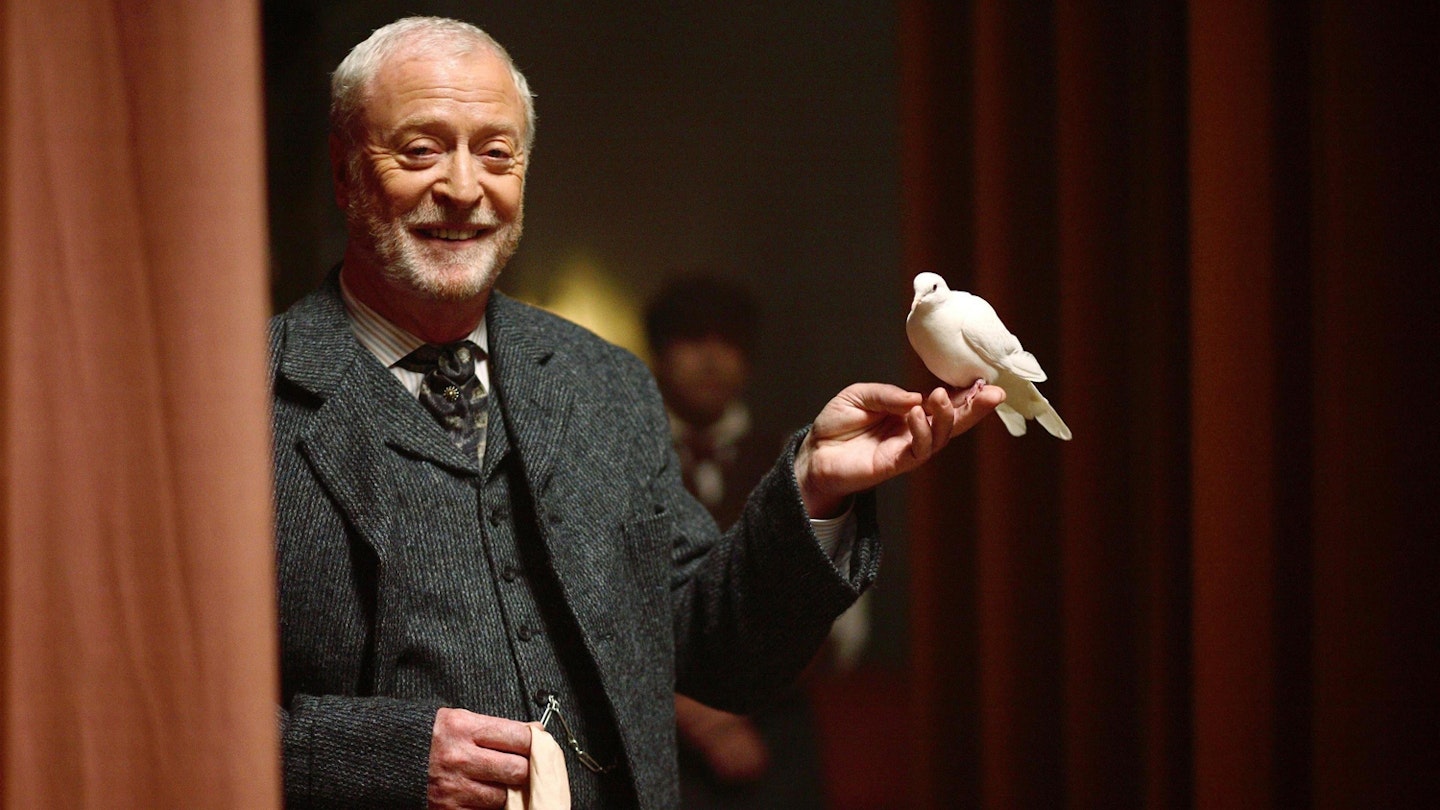
The book is a curious piece of writing, playing as much with genre as it does expectation, even tracing the impact of Borden and Angier's battle on their descendents to the modern day. Despite Nolan's objection to Empire having read it – he told both his stars not to go there, either (Jackman listened to him; Bale didn't) – he and Jonathan have certainly made a lot of changes, not least the excision of the modern-day segments. There must be some surprises left. "I always make a point of reading the book before I start working on a movie that's an adaptation of it," says Bale, "and this is the only book that I haven't lifted anything from whatsoever. The reason for that is Chris has really done his own take on it. It's based on a book, it's not the book."
Nolan describes himself as being "fascinated" by Priest's novel, but denies being any great fan of stage magic. That wasn't the appeal. Rather, he saw the connection between his own art and that of an illusionist. "During the course of making this film," he says, "I found this: we are all big fans of magic. In the flesh. Seeing something performed on a small scale or a big scale, magic is as entertaining today as it ever was. But I think that cinema has over the years co-opted an enormous amount of the pop appeal of magic, which is why this is a period film – magicians in the Victorian era were like the filmmakers or even the movie stars or rock stars of their day. The stakes are much higher; fame and fortune and all the rest.
"So I think there are huge similarities between what magicians did back then and what filmmakers do now. Just think of their relationship with the audience. Although there's a key misconception there: we think of magicians as people who try and convince us they have supernatural powers. But they don't. There's a line which Hugh's character has in the film, where he says: 'If people thought what I do on stage was real, they wouldn't applaud, they'd scream.' Like cutting a woman in half. And that to me is very connected with the difference between fiction and reality in cinema. Even though as a filmmaker or as a magician you try to convince an audience of the reality of something, it's within the greater context of audience suspension of disbelief. And that's where the entertainment comes from."
It would appear that Nolan's drawn this connection even closer through his adaptation of The Prestige; in effect, he's entwining both forms of entertainment in one work. It's not so much that he's determined to replicate magic on screen – "We're not expecting a cinema audience to react how a live audience would to a live magic trick" – rather, like Ching Ling Foo's life-dominating secret, it's far more fundamental than that.
"The film has been written according to the principles of how a magic trick works," explains Nolan. "Our narrative plays tricks with the audience. It has stories within stories and misdirections and so forth." So, Empire ventures, are the three stages of magic as outlined by Caine's character pretty much the three acts of the film? "Yeah, very much," responds Nolan. "But the three acts are all scrambled together because of the non-linear construction."
Bemused? That's the point. There's a line from Alfred Borden in the book which Nolan agrees perfectly sums up the audience reaction to his movie: "There will be some who are baffled... some who will profess a dislike of being duped, some who claim to know the secret, and some, the happy majority, who will simply take the illusion for granted and enjoy the magic for the sake of entertainment."
"Those are very much the kind of responses we've been getting from test audiences," says Nolan. "I'm not imagining it'll be that divisive, but I'm definitely getting a varied response. Which is fine – I'm certainly not looking for a unanimous reaction..."
Originally printed in November 2006.
